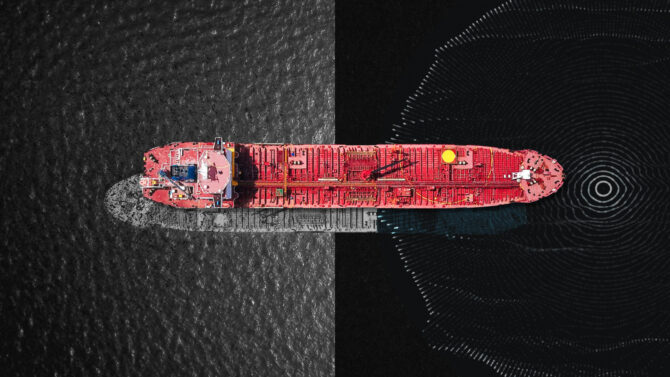A little before applications close on 14 December, for journalists who wonder whether their work is “European enough,” Executive Director Jennifer Athanasiou-Prins explains why local journalism remains a cornerstone of European information and why journalists from every corner of the continent should apply.
Across Europe, the most powerful journalism often begins in places that don’t consider themselves powerful. This year, the European Press Prize is once again looking for stories that illuminate, challenge, and connect —no matter where they start.
“The stories that stuck with me most over the years came from quite a personal experience,” Jennifer Athanasiou-Prins says. “Not necessarily the huge, obvious problems around the world, but smaller personal accounts.” One example she still carries with her is a story about someone giving up one of their two nationalities.
While these are the kinds of stories she personally finds compelling, she encourages all submissions on and from Europe, whether they focus on intimate personal narratives or larger, Europe-wide topics, before entries close for the next edition of the European Press Prize on December 14.
Inside the cross-border investigation “The Shadow Fleet Secrets”

We spoke with the journalists behind the award-winning cross-border investigation “Τhe Shadow Fleet Secrets,” which revealed how hundreds of oil tankers operated by Western companies ended up carrying Russian crude oil.
Athanasiou-Prins leads the European Press Prize, an institution that annually recognizes quality journalism across the continent. What the Prize reveals, year after year, is that European journalism doesn’t live only in major capitals or large investigative networks. It is just as often born in small countries, local newsrooms, and precarious reporting ecosystems.
The stories that stuck with me most over the years came from quite a personal experience. Not necessarily the huge, obvious problems around the world, but smaller personal accounts.
Jennifer Athanasiou-Prins, Executive Director of European Press Prize
Each new cohort of winners reinforces this truth. In 2025, the Investigative Reporting Award went to Serving Moscow, a Moldovan undercover investigation by Măriuța Nistor and Natalia Zaharescu for Ziarul de Gardă, exposing how Russian political influence spread in Moldova. The Migration Journalism Award honored Growing Up ‘Non-Western’ in Denmark’s Nanny State, a deeply personal narrative that reframed a national debate through lived experience. The Public Discourse Award went to Mothers at the End of the World, a Polish essay published in Książki that blended intimate testimony with geopolitical anxiety.
This pattern repeats through previous years: Slovenian reporting on intergenerational loss (We Have Betrayed a Generation, 2024); Italian investigations into extractive economics (Iraq Without Water: The Cost of Oil to Italy, 2024); Maldita.es’s WhatsApp chatbot for countering disinformation in Spain (Maldita.es’ WhatsApp Chatbot to thrive a fact-checking operation on disinformation, 2021); a Belarusian investigation into police violence (Brutalised Minsk: How Belarusian Police Beat Protesters, 2021); and an innovative account of collaborative journalism coming to life in Transylvania (How DoR Organised an All-Team Pop-Up Newsroom in Transylvania, 2020).
Even the Innovation Award to Cities for Rent (2022) began with a local question: Who owns our neighborhoods?
Across a decade of winners, the through-line is clear: Local stories become European stories when they illuminate shared democratic challenges.

The meaning of “European journalism” today is inseparable from democracy itself.
Jennifer Athanasiou-Prins, Executive Director of European Press Prize
Europe through Greece
Few places embody this better than Greece. Participations from the country in the European Press Prize —from the 2021 nominee The Logbook of Moria, to the 2024 runner-up The Pylos Shipwreck, to the 2025 nominee Deadly Prices: How Big Pharma Feeds Inequality in Europe— reflects a journalism landscape shaped by migration, economic inequality, corruption, and democratic strain.
Greek journalists have repeatedly shown that reporting born in national turmoil can speak directly to European anxieties. Τhe collaborative investigation of four Babies for Sale (2017), Ioannis Papadopoulos’ Aegean Journey of Despair (2016) and Maria Louka’s The Lost Youth in Greece (2015), all began as Greek stories, but quickly became continental ones. This is what Athanasiou-Prins means when she says that a story rooted in a cultural or regional context “can transcend local or national borders; it can be so much more.” And part of that value, according to her, lies in how such work helps people understand the experiences of others across Europe, allowing them to see beyond their own borders, encounter the realities lived elsewhere, and recognize themselves in the stories of people they may never meet.
Context matters
One piece of guidance she returns to is simple but essential: context is not optional.
The European Press Prize’s Preparatory Committee spans more than 20 people across nearly as many countries. “They need context in order to judge and assess something adequately,” she explains. Local stories can —and regularly do— gain European recognition, but only when the journalist provides the political, economic, or cultural contours needed for readers beyond their borders.
A shared European duty
For Athanasiou-Prins, the meaning of “European journalism” today is inseparable from democracy itself. Across the continent, even in places long considered stable, journalists face increasing obstacles: political interference, legal harassment, financial collapse, disinformation, and precarity. “We need to be very mindful of the role of journalism as a guardian of democracies,” she says.
As the December 14 deadline approaches, Athanasiou-Prins has one message for journalists who think their work is too local, too small, or too underfunded to stand a chance: “Look at our shortlists from the past years. There is a big variety of different types of journalism on there, both local versus bigger international collaborations,” she says. “Don’t be discouraged.”
So, submit. Especially if you believe your reporting is “too local.”
The Prize awards five categories each year:
- Investigative Reporting
- Distinguished Reporting
- Innovation
- Migration Journalism
- Public Discourse
Categories are deliberately broad. They reflect the diversity of the continent’s journalism (from cross-border investigations to personal narratives).
Each winning entry receives €10,000.
Eligible work must have been published within the Prize year and must include an English summary and contextual explanation, particularly for stories rooted in local environments.
Deadline: December 14, 2025.

